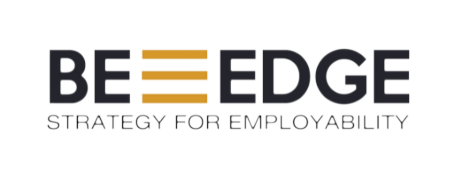
Beyond Theory: How Consulting Case Studies Build Career Resilience
By the BE-EDGE Team
In this environment, one question looms large: Are we preparing students to thrive in uncertainty or just to pass exams?
The world of work is shifting faster than most classrooms can keep up. Generative AI is reshaping entire industries; global supply chains are under constant pressure, and career paths that once looked linear now bend, break, and restart multiple times.
Traditional lectures and textbook memorization fall short in answering that question. What today’s graduates need isn’t just knowledge; they need resilience. And one of the most effective ways to cultivate it lies in a method pioneered by Harvard Business School nearly a century ago: the consulting case study.
The Limits of Knowledge Without Application
Universities worldwide are under pressure to demonstrate that their graduates are “career-ready”. Yet, despite impressive GPAs, many students struggle to translate classroom learning into practical skills. Employers consistently cite gaps in problem-solving, adaptability, and communication, the very traits that matter most in volatile environments.
The problem is structural. Knowledge in itself is no longer a differentiator. It’s accessible on demand, thanks to search engines and AI tools. What sets future leaders apart is not what they know but how they respond when faced with a complex, ambiguous problem that has no single right answer.
This is precisely the space where consulting case studies excel.
Consulting Cases as Simulations of Reality
Unlike standard academic exercises, consulting cases mimic the complexity of real business challenges. Students aren’t just asked to regurgitate theories; they are required to:
- Analyze incomplete information (just like in real life, data is never perfect).
- Balance competing interests (customers, employees, investors, regulators).
- Defend a recommendation (building the confidence to speak with authority).
In short, case studies train students to make decisions in uncertainty, skills far more transferable than memorizing frameworks. They cultivate what psychologists call adaptive expertise, the ability to apply knowledge flexibly across various contexts.
From Case Method to Career Resilience
Career resilience is the ability to withstand setbacks, pivot when opportunities shift, and find growth in uncertain conditions. It is no longer optional; it’s a survival skill.
Consulting cases uniquely foster this resilience by exposing learners to:
- Ambiguity – Students quickly realize there is rarely one “correct” answer, which mirrors the unpredictability of modern work.
- Iteration – Just as career paths are nonlinear, cases often require revisiting assumptions and reframing solutions.
- Reflection – The debriefing process builds self-awareness, allowing learners to connect decisions with consequences.
Through repeated exposure to this process, students not only sharpen their critical thinking but also develop the confidence to embrace change rather than fear it.
Why Employers Value Case-Trained Graduates
Employers increasingly seek hires who can “hit the ground running.” While technical skills may get a candidate noticed, it’s the soft skills developed in case-based learning that make them stand out:
- Problem-Solving Under Pressure – The ability to prioritize issues in fast-moving contexts.
- Team Collaboration – Most cases require group analysis, mirroring workplace dynamics.
- Executive Communication – Distilling complex data into actionable recommendations is a skill that transcends industries.
This alignment explains why consulting firms, investment banks, and multinational corporations heavily rely on case interviews. It’s not just about assessing knowledge; it’s a test of resilience and adaptability.
Extending the Case Method Beyond Business School
The case method shouldn’t be confined to MBA classrooms. The future of employability lies in making this approach accessible to undergraduates, technical programs, and even lifelong learners.
At BE-EDGE, we see consulting cases as more than academic exercises; they are bridges. They connect students to industry challenges, expand their professional networks, and give them a portfolio of applied experiences to showcase to employers.
In a global economy where credentials alone no longer guarantee success, students who can point to a history of solving real-world problems hold a distinct advantage.
A Call to Reframe Career Preparation
As we enter 2025, institutions face a pivotal decision: continue emphasizing traditional measures of academic success or embrace methods that cultivate resilience, adaptability, and confidence. Consulting case studies is not a silver bullet, but they are one of the most practical, scalable tools we have to bridge the gap between education and the future of work.
The question, then, is not whether we should use them; it’s whether we can afford not to.


